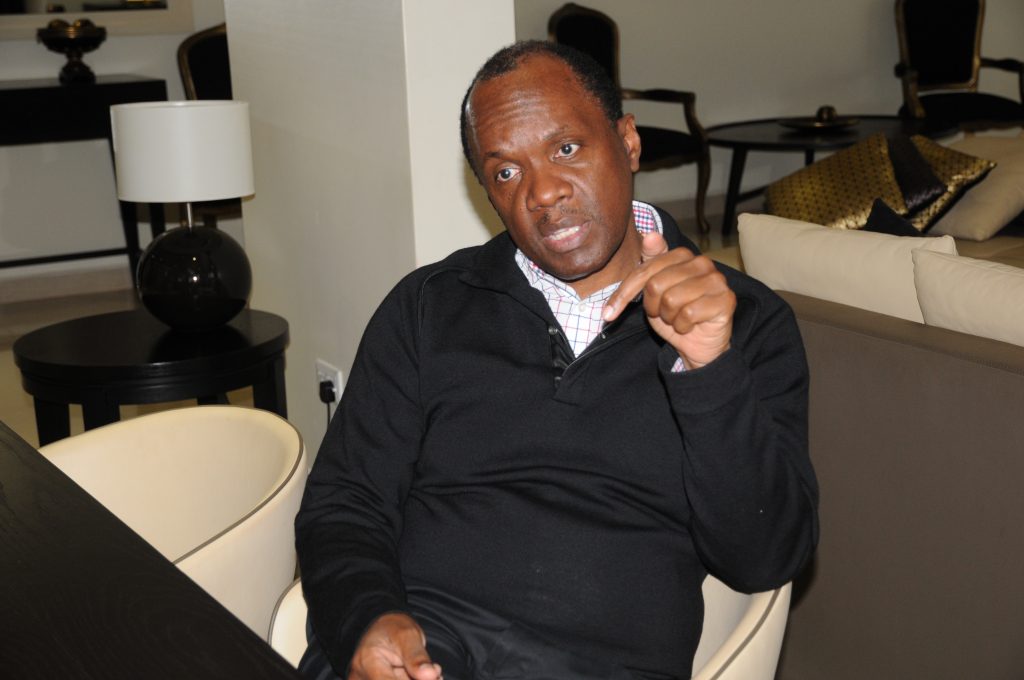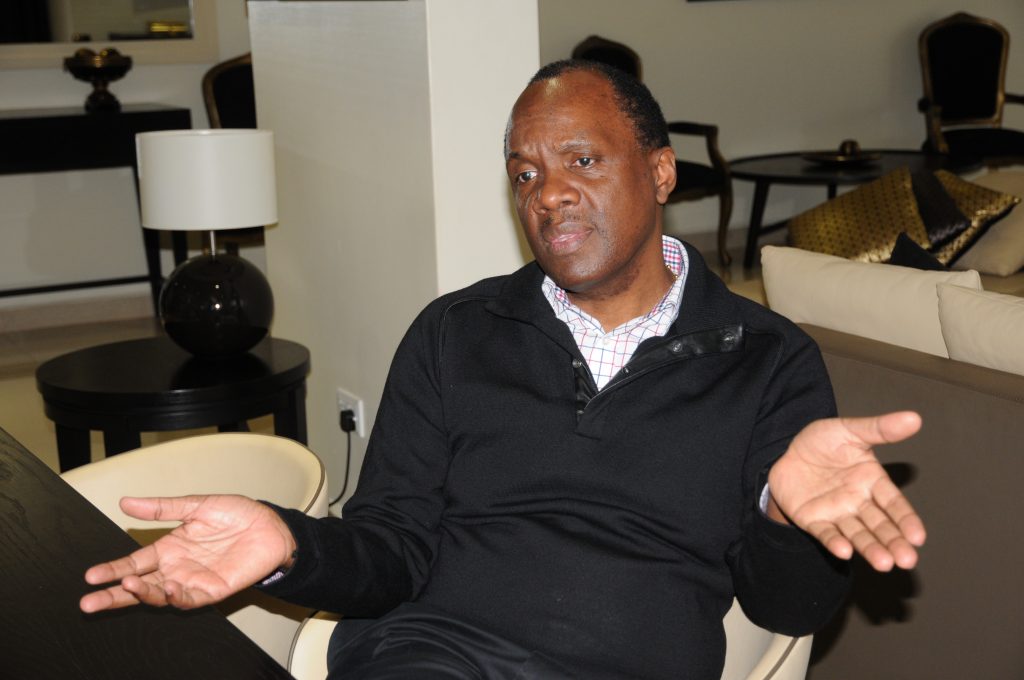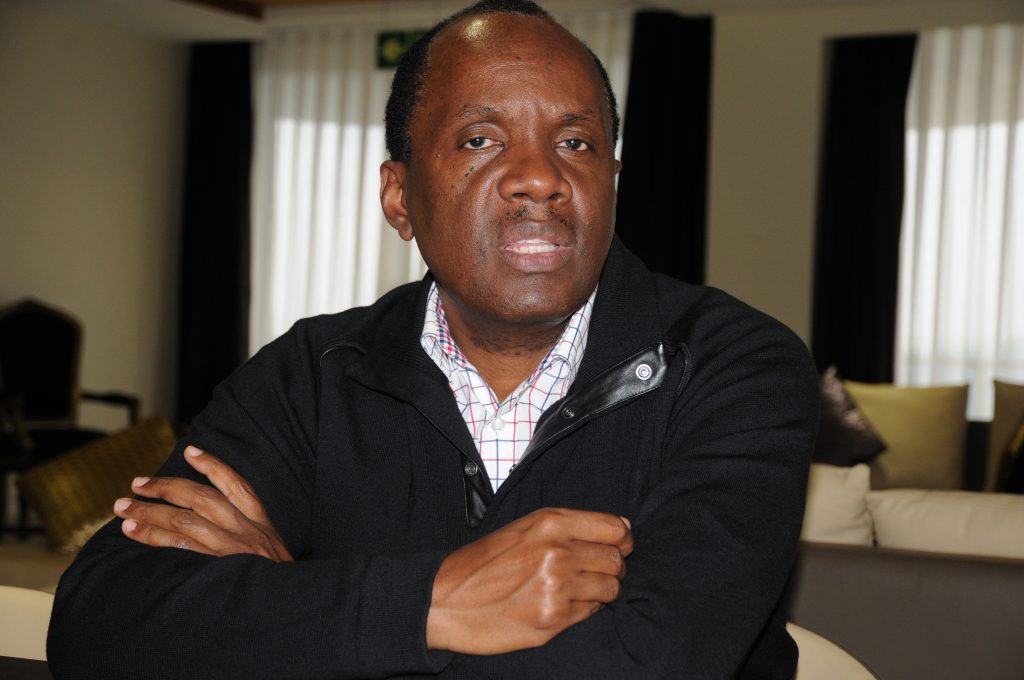Congratulations over the recent good Umeme results. You now have about 6 years to go on your concession. How is your performance on the concession targets to date?
I think we have done well; we had a 20-year concession and 14 years have gone down, so we are left with about 6 years.
In summary, I can say we have connected slightly over 1,000,000 customers from – 292,237 in 2007 to over 1,300,000 currently. To us, every customer is a unique milestone, a unique story- so if you ask me, I will say, today, there is 1,000,000 ++ reasons to believe in Umeme.
Someone might say it is premature to be asking about the concession extension or negotiations, but the fact that around us is that Isimba Dam has come on board and Karuma is coming on board this year- altogether raising Uganda’s generation capacity to 1,767MW by end of 2019.

Government has invested in about USD1.6 billion in Karuma Dam and about USD500 million in Isimba Dam and at least USD1 billion in high voltage transmission projects to evacuate this power. To absorb that power effectively, to evacuate it to where it is needed- homes, businesses, factories, schools, health centres etc., we need to invest large amounts of money over a longer tenure; that is the most important thing. We need to raise and invest between USD1 billion to USD1.5 billion in the next five to ten years, so that over a period of 20 years we have a robust, reasonably modern infrastructure that distributes power to almost 60% of the population. The remaining 40% will be off-grid solutions e.g. solar solutions.
READ PART 1 OF OUR INTERVIEW WITH PATRICK BITATURE HERE: https://www.ceo.co.ug/a-day-with-patrick-bitature-drinking-from-his-cup-of-wisdom-on-success/
Most importantly, you have to remember that 60% is a moving target because 60% of the population today is not going to be 60% of the population in 10 or 20 years’ time.
We can choose to invest for the remaining 6-7 years, but if you have seven years, the banks will only finance for not more than five years and that will impact the tariff, greatly. So we are looking for longer term funding- 15 to 17 years and then we can spread that cost- amortize it over time. That shall have a lowering impact on the tariff- that’s the principle reason we are beginning these negotiations now.

Secondly there has been a huge complaint about our rate of return, we demanded a rate of return when we were negotiating for these concessions 14 years ago, of 20% and that was appropriate at that time because the country was under perceived high risk. Today the perceived high risk of the country is much lower than then, so it is easier to attract capital. The policies of this country have been very stable, the movement of foreign exchange, the amount of inflation etc. the risks in many of the areas have been mitigated.
If the high rate of return is the pain in the thigh of the government and the public, we are willing to consider a few points on our rate of return, as long as it makes business sense- for our customers and shareholders.
We are Ugandans running this business; we have investments here as well and we are paying these bills too. You cannot say I want Umeme to profiteer at the expense of my hotels, my businesses. No, we must find the right balance- where there is a point of equilibrium- our customers are flourishing, the country is growing and is competitive, but also our shareholders, many of whom are also Ugandans are happy too!
If we are not competitive, as Ugandans, then we shall depend on Kenya or Rwanda or Ethiopia and that doesn’t put me as a Ugandan in a healthy position. I don’t want us to be in a weak position as a country, so we’ve got to negotiate what is fair for everybody. I am first a Ugandan and one day am not going to be the chairman, maybe I will not be having shares in this company anymore, but my children will still be here, my grandchildren will be here.
The key question here is how do we move our country forward? In such a competitive environment, we need to bring that tariff down as much as possible but it must also make sense for the people who are giving us money so that they are sure of their return and also those who give us their equity get a dividend. That is what we want.
Speaking of the negotiations, how are they progressing?
Well, the government has been negotiating first on its own, and we have been preparing on our own. These preparatory meetings are so important. We have got a feeling that the government is much more responsive and the tone they are setting is that they want to negotiate in good faith, because it is also in their interest that they do something in good faith that is sustainable, robust and can endure the test of time.
We are looking long-term, we are not asking for one or two years because what we do should help this country move forward. The people making decisions on behalf of government have to be balanced; not to crush the negations. It is not about one side winning and the other losing- we need to come up with a win-win formula that is good for Uganda and good for shareholders.
GoU has set itself targets to connect 300,000 customers every year with a target to achieve 60% access by 2027. Is Umeme up to the task? How are you readying yourselves for this?
I think Umeme is well prepared for that. We have had lot of time to build capacity- for anybody to do such an ambitious thing you need at least five or may be 10 years of experience- not just any experience but experience in Uganda.

You may want to bring another international company, thinking they will just copy and paste their experiences elsewhere here, but most often that does not work.
For example, connecting customers is one thing, but making sure that you are collecting money from them is also very important- you need to look at the whole ecosystem in totality. That is why I think Umeme is a leading candidate so far; better someone you know with a safe pair of hands.
We are trusted to a high level by our stakeholders. We been touted as the best power distribution company in Africa by the World Bank and other international organizations- because what we are doing is leading the way, it is cost effective, private sector led, with no subsidies and customer centric.
So to do what we are doing- mobilizing resources, investing them carefully and making sure you get a decent return, is exemplary. We are leading the way.
I think we stand a good chance, we have made a good case. If we can finalize these negotiations with the government- am optimistic before the end of the year, these things will be wrapped up.
Our share price should be much better, because it also affects our valuation, and it helps us to raise money. When we go out people look at our balance sheet- people look at the numbers.
I understand, the Electricity Regulatory Authority (ERA) has cut down the allowable operational costs- Umeme had applied for USD 65m but was given USD 41m for 2019 – almost the same amount in 2012 (USD42m) when you only had 400,00 customers. How are you going to pull this through yet you have the tight government targets to execute and the new supply from Isimba and Bujagali to absorb?
The first principle here is that the quality of service we give is a function of the amount of money that we invest. If you want first world infrastructure and customer service like in Japan or South Korea, you have to invest in a lot of money. Japan and South Korea are able to invest and still supply power below US$5 cents because they are a very rich country. We can’t afford to do that here yet, without having to get subsidies; so if ERA squeezes us, then that is the quality of service we are going to get.
People are complaining they don’t want to have an outage for more than an hour- also me as a Ugandan I will be proud to know that there is nowhere in Uganda that has an outage of UMEME for more than an hour. I have been chairman for quite some time now and it is embarrassing I feel it like someone is holding my breath when power goes away.
Slowly we had moved away from many of the major distribution issues; we have invested significantly in more transformers, more grid lines, reliable service and a fast responding customer service team- we have set the stage for a world class electricity distribution.
If you choose to choke us now, suit yourself; you are the regulator, we can only do so much with the amount of money we have been given. Because you are the regulator and you are in a strong position, you can do anything at the stroke of a pen, but it has consequences.
The task ahead, needs significant investments. Yes, we are open to discussing our ways of work but we must keep our eyes on the ball. For example, we are switching to concrete poles because the wooden poles used to be designed to last 15 years but because of some terrains like swamps and heavy rains, they can’t last more than 10 years. Switching to concrete means we need new equipment, because a concrete pole can’t be lifted by human beings, so we have to double capex in some of these areas.
It is unfair to think that we can have a better-quality service going forward if we are going to reduce the budgets. But we are talking to the regulator- the good thing is there is dialogue, there is openness and the regulator is very sincere.
We think it is in their interest too, because they shine when we shine; if we do poorly, they will not shine.


 Thousands of women empowered to rise and lead at the I&M Bank powered Dominate Conference 2025.
Thousands of women empowered to rise and lead at the I&M Bank powered Dominate Conference 2025.